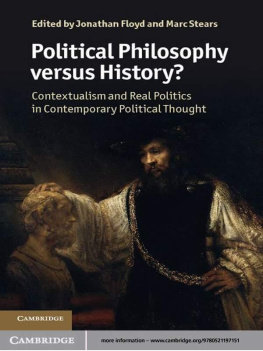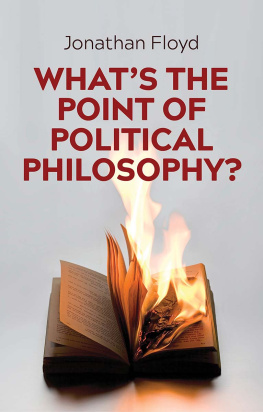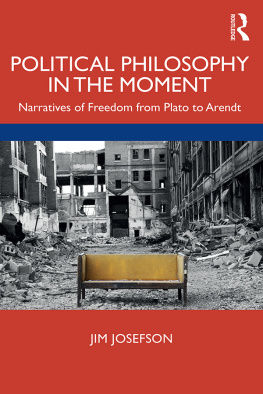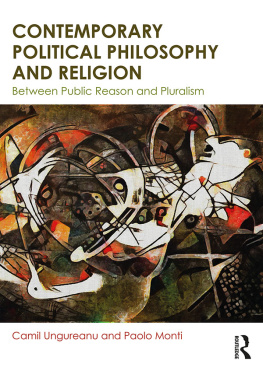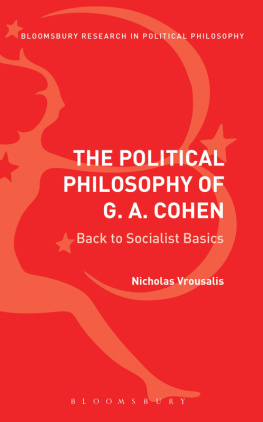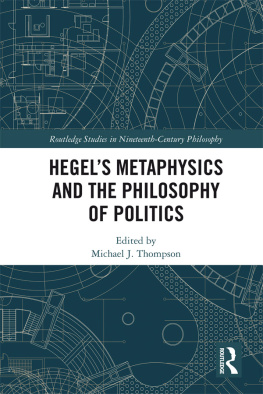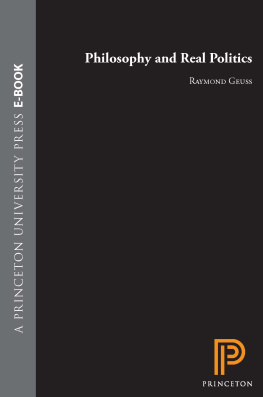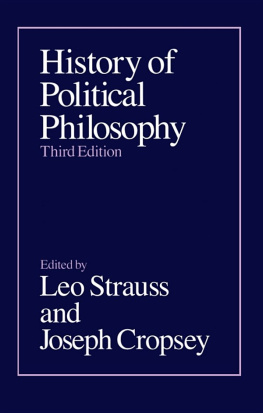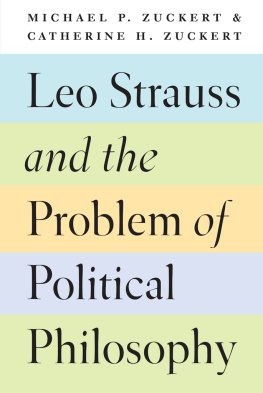Political Philosophy versus History?
Contextualism and Real Politics in Contemporary Political Thought
Is the way in which political philosophy is conducted today too ahistorical? Does such ahistoricism render political philosophy too abstract? Is political philosophy thus incapable of dealing with the realities of political life? This volume brings together some of the worlds leading political philosophers to address these crucial questions. The contributors focus especially on political philosophys pretensions to universality, and on its strained relationship with the world of real politics. Some chapters argue that political philosophers should not be cowed by the accusations levied against them from outside of their own field. Others insist that these accusations require a dramatic reshaping of normative political thought. The volume will spark controversy across political philosophy and beyond.
Jonathan Floyd is British Academy Post-Doctoral Fellow in the Department of Politics and International Relations, University of Oxford, and Research Fellow in Political Theory at St Hildas College, Oxford. He is currently working on a book on methodology in political philosophy, as well as a book on the same topic as the present volume.
Marc Stears is Fellow in Politics at University College, Oxford, and University Lecturer in Political Theory in the Department of Politics and International Relations, University of Oxford. His most recent book is Demanding Democracy: American Radicals in Search of a New Politics (2010).
CAMBRIDGE UNIVERSITY PRESS
Cambridge, New York, Melbourne, Madrid, Cape Town, Singapore, So Paulo, Delhi, Tokyo, Mexico City
Cambridge University Press
The Edinburgh Building, Cambridge CB2 8RU, UK
Published in the United States of America by Cambridge University Press, New York
www.cambridge.org
Information on this title: www.cambridge.org/9780521146883
Cambridge University Press 2011
This publication is in copyright. Subject to statutory exception and to the provisions of relevant collective licensing agreements, no reproduction of any part may take place without the written permission of Cambridge University Press.
First published 2011
Printed in the United Kingdom at the University Press, Cambridge
A catalogue record for this publication is available from the British Library
Library of Congress Cataloguing in Publication data
Political philosophy versus history : contextualism and real politics in contemporary political thought / edited by Jonathan Floyd, Marc Stears.
p. cm.
ISBN 978-0-521-19715-1 (hardback)
1. Political science Philosophy. I. Floyd, Jonathan, 1980 II. Stears, Marc. III. Title.
JA78.P53 2011
320.01dc22
2011005953
ISBN 978-0-521-19715-1 Hardback ISBN 978-0-521-14688-3 Paperback
Cambridge University Press has no responsibility for the persistence or accuracy of URLs for external or third-party internet websites referred to in this publication, and does not guarantee that any content on such websites is, or will remain, accurate or appropriate.
Acknowledgements
This book first emerged from a one-day workshop organised by Jonathan Floyd and hosted at University College, Oxford in the summer of 2007. We are extremely grateful to everyone who participated in that initial event, including Michael Freeden, Benjamin Jackson, Mark Philp, Alan Ryan, Quentin Skinner and Adam Swift. We are also grateful to the participants at two further events, one held at the American Political Science Association annual convention in Boston in 2008, and the other, in 2009, again at University College, Oxford. These participants included Annabel Brett, Christopher Brooke, Jeremy Farris, Jeremy Jennings, David Leopold, Lois McNay and Reidar Maliks. Generous financial support for these events came from Oxfords Centre for Political Ideologies, where we warmly thank the Centres Director, Michael Freeden, for his invaluable assistance, and from University College, Oxford, where we equally warmly thank the Senior Tutor, Anne Knowland. We also greatly appreciated the work of the excellent team at Cambridge University Press who helped us transform the conversations at these events into a book. John Haslam was the ideal editor, generous and demanding in exactly the right measure, and Josephine Lane offered superb support throughout the final process.

